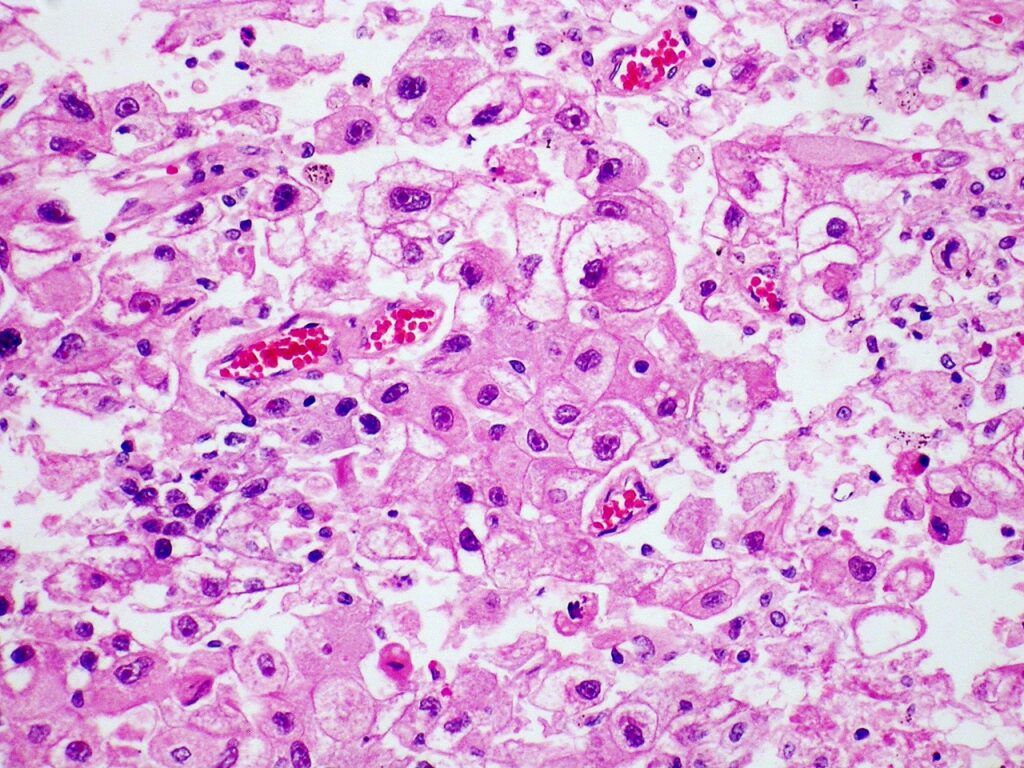The China National Medical Products Administration’s (NMPA) Center for Drug Evaluation (CDE) has accepted BeiGene’s supplemental biologics license application (sBLA) for tislelizumab to treat hepatocellular carcinoma (HCC).

BeiGene is seeking marketing approval for tislelizumab to treat hepatocellular carcinoma. Credit: Atlas of Pulmonary Pathology/ Flickr.
Subscribe to our email newsletter
The regulatory acceptance of application for marketing authorisation of tislelizumab is to treat first-line unresectable or metastatic HCC patients.
The humanised IgG4 anti-PD-1 monoclonal antibody tislelizumab has been specifically designed for reducing binding to Fc-gamma (Fcγ) receptors on macrophages.
This helps support the immune cells in the body to detect and fight tumours.
Tislelizumab is currently being assessed as monotherapy and in combination to treat solid tumour and hematologic malignancies.
BeiGene R&D global head Lai Wang said: “While the incidence of HCC is increasing in China, the treatment landscape has not advanced accordingly; survival benefits with newer treatments are modest and multi-kinase inhibitors have sub-optimal tolerability.
“We believe the evidence from our rigorously conducted global clinical development program for tislelizumab in HCC support the efficacy and favourable tolerability profile and look forward to working with NMPA on this submission and bringing a new treatment option to patients with HCC in China.”
The company stated that the sBLA was supported by data obtained from the RATIONALE 301 clinical trial.
The open-label, global, randomised, Phase III study compared tislelizumab with sorafenib as a first-line treatment in unresectable HCC adult patients.
Up to 674 participants were enrolled from research centres across the US, Asia, and Europe.
The China NMPA approved tislelizumab to treat nine indications that include conditional approval to treat HCC patients who have received treatment with at least one systemic therapy previously.
 Advertise With UsAdvertise on our extensive network of industry websites and newsletters.
Advertise With UsAdvertise on our extensive network of industry websites and newsletters.
 Get the PBR newsletterSign up to our free email to get all the latest PBR
news.
Get the PBR newsletterSign up to our free email to get all the latest PBR
news.

